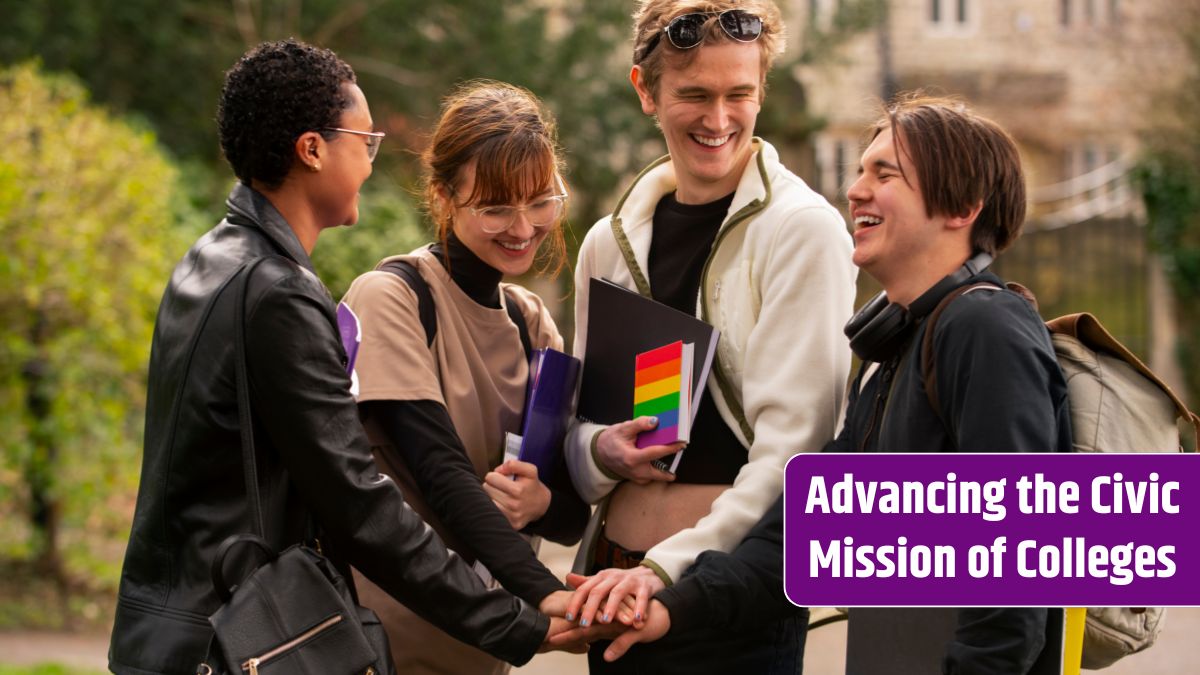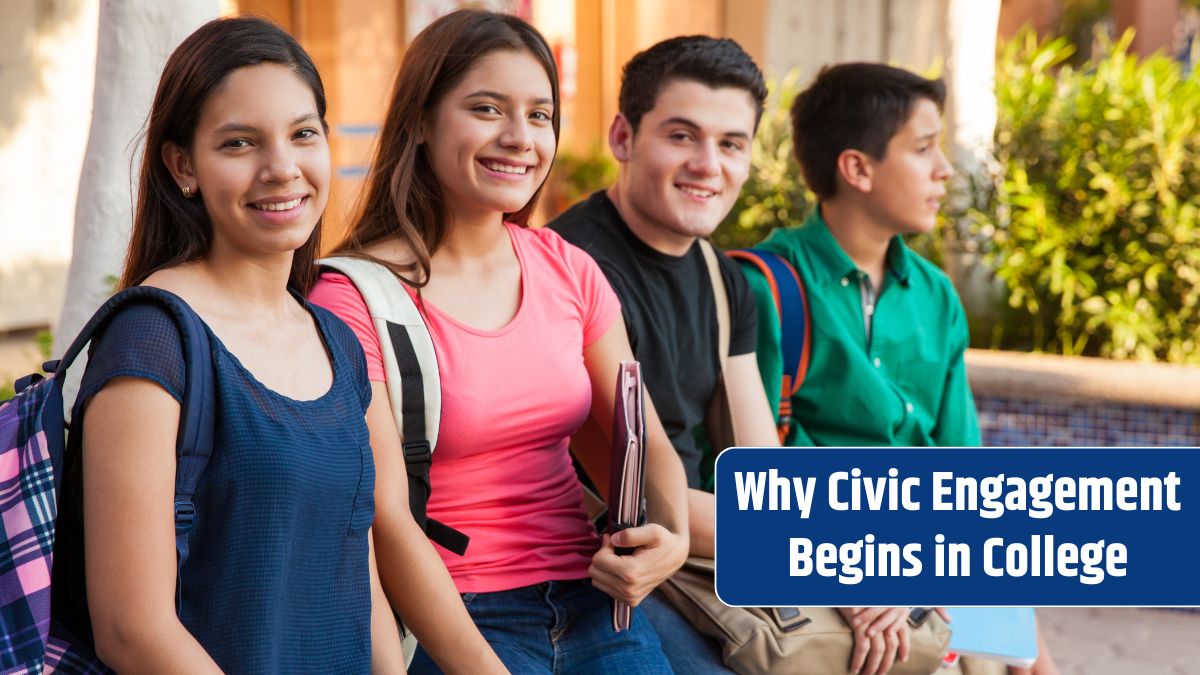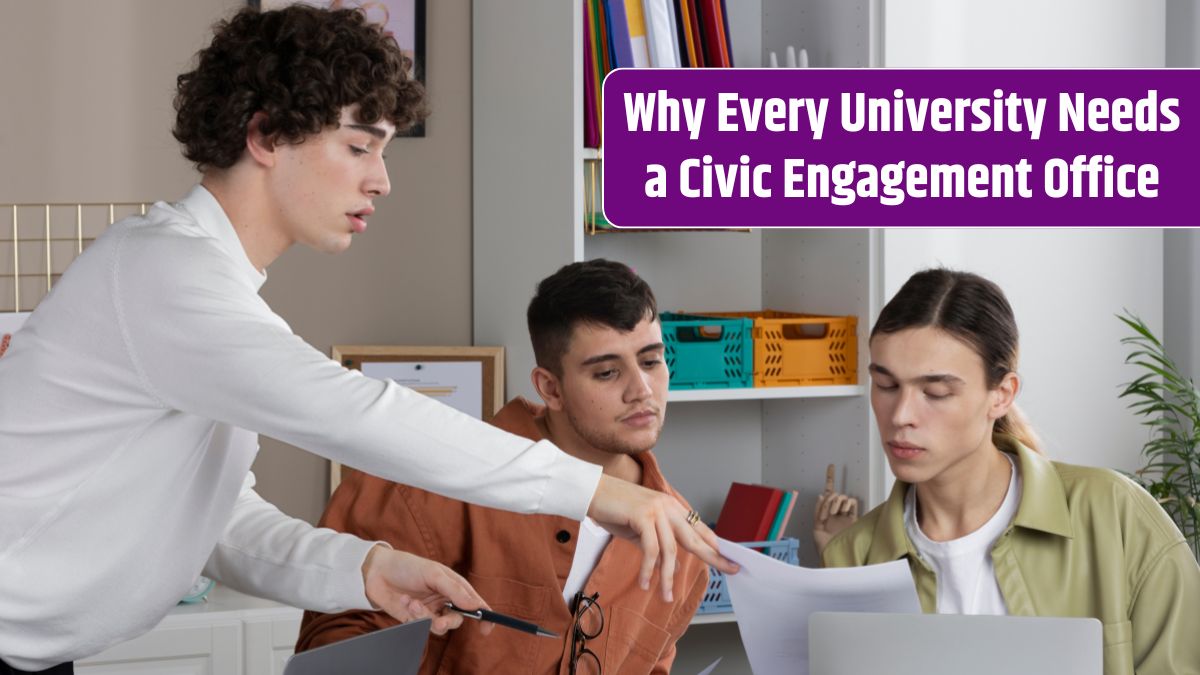Higher education is evolving—and it’s not just about lectures, labs, and landing a job anymore. More colleges are returning to one of their oldest missions: preparing students to be active, responsible citizens. That’s where the civic mission of higher education comes in. It’s about using knowing as a tool for change, leadership, and service. And across the country, colleges are reigniting this purpose with new energy, new programs, and powerful community partnerships.
Table of Contents
History
Believe it or not, civic responsibility was once a core purpose of higher education. Colleges weren’t just designed to train workers—they were built to create informed, engaged citizens. Over time, as job training took center stage, the civic mission got pushed to the sidelines. Now, that mission is making a comeback, and it’s more relevant than ever.
Engagement
Today’s colleges are finding new ways to connect students with their communities. Service-learning programs, campus voter drives, and community research projects are just a few examples. These opportunities give students real-world experience while helping them know their role in democracy. They don’t just study problems—they help solve them.
Learning
Civic engagement adds a whole new dimension to education. Students learn critical thinking, empathy, communication, and leadership—skills that matter in every career. They also learn to collaborate across differences, an essential ability in today’s divided world. It’s not about memorizing facts; it’s about making meaning out of learning.
Equity
The civic mission also includes fighting for equity and justice. Colleges are launching initiatives that support underrepresented communities, both on and off campus. From working with local nonprofits to hosting public forums on social issues, students are learning how to advocate for a fairer, more inclusive society—and how to make their voices count.
Leadership
At the heart of this mission is leadership. Students who engage civically often go on to lead in public service, education, business, and social change. Through programs like AmeriCorps, fellowships, and civic scholar initiatives, campuses are cultivating the next generation of thoughtful, community-minded leaders.
Impact
This isn’t just feel-good stuff—it’s making a real difference. Communities get access to bright, committed students. Colleges build stronger reputations and tighter community ties. And students walk away with purpose, perspective, and a passion for impact. In short, everyone wins.
Here’s a look at how civic engagement aligns with college outcomes:
| Civic Focus Area | Student Benefit | Community Benefit |
|---|---|---|
| Service Learning | Real-world experience | Volunteer help, fresh ideas |
| Voter Engagement | Democratic participation | Increased civic awareness |
| Equity & Inclusion | Advocacy, cultural empathy | Better representation |
| Leadership Programs | Confidence, communication | Future changemakers |
Colleges embracing their civic mission aren’t just preparing students to succeed—they’re preparing them to serve. And in today’s world, that might be higher education’s most important lesson of all.
FAQs
What is the civic mission of colleges?
It’s the goal of preparing students to be active, engaged citizens.
Why is civic engagement important in college?
It builds leadership, empathy, and real-world skills.
How do colleges support civic learning?
Through service-learning, voter drives, and public projects.
Does civic education help careers?
Yes, it strengthens soft skills and leadership qualities.
Who benefits from civic engagement?
Both students and the surrounding communities benefit.
























